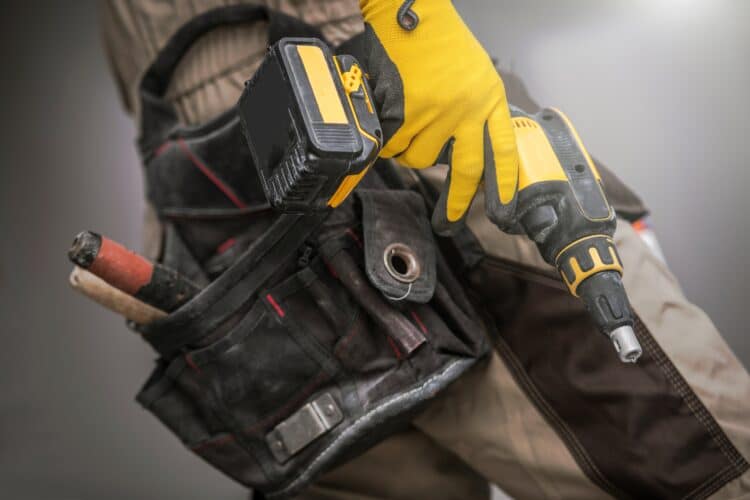Is 2.0 Ah better than 4.0 Ah?
Key Takeaways
- A higher Ah battery, such as a 4.0 Ah battery, provides a longer runtime compared to a 2.0 Ah battery.
- A 2.0 Ah battery is more lightweight, compact, and cost-effective, making it suitable for shorter periods of use or devices that don’t require as much power.
- Factors to consider when choosing between a 2.0 Ah and a 4.0 Ah battery include task requirements, runtime needs, weight and portability, and budget considerations.
When it comes to choosing the right battery for your devices or power tools, the question of whether a 2.0 Ah battery is better than a 4.0 Ah battery often arises. In this article, we will explore the differences between these two battery capacities and their respective pros and cons. By examining the information provided, we can make an informed decision based on our specific needs and requirements.
Understanding Battery Capacity
To comprehend the comparison between 2.0 Ah and 4.0 Ah batteries, it is crucial to understand the concept of battery capacity. Ampere-hours (Ah) is a unit of measure that represents the amount of charge a battery can deliver over a specific period of time. The higher the Ah rating, the more charge the battery can store, resulting in a longer runtime.
The Benefits of a Higher Ah Battery
According to the information provided, a higher Ah battery, such as a 4.0 Ah battery, has a greater capacity and can provide a longer runtime compared to a 2.0 Ah battery. This means that if you require extended periods of use or if you are using power-hungry tools that demand more power, a 4.0 Ah battery would be a better choice. It allows you to work for a longer time without the need for frequent recharging.
Considerations for 2.0 Ah Batteries
While a 4.0 Ah battery may offer longer runtime, there are certain situations where a 2.0 Ah battery may be more suitable. For instance, if you prioritize ease of use and lightweight tools, a 2.0 Ah battery would be a better option. It is more compact and lighter than a 4.0 Ah battery, making it ideal for short periods of use or for devices like smartphones or tablets that don’t require as much power.
Factors to Consider
When deciding between a 2.0 Ah and a 4.0 Ah battery, there are several factors to consider:
- Task Requirements: Assess your specific needs and the power demands of the tools or devices you will be using. Higher energy-consuming power tools may benefit from a 4.0 Ah battery, while smaller devices may suffice with a 2.0 Ah battery.
- Runtime Needs: Determine how long you require the battery to last on a single charge. If you need an extended runtime, a 4.0 Ah battery would be more suitable.
- Weight and Portability: Consider the weight and portability of the battery. A 2.0 Ah battery is lighter and more compact, making it easier to handle and transport.
- Budget Considerations: Take into account the cost difference between the two battery options. Typically, higher Ah batteries are more expensive than lower Ah batteries.
Other Factors Impacting Battery Performance
While the Ah rating is an important consideration, it is not the sole factor determining battery performance. Voltage and power output also play a significant role. It is essential to check the voltage of the battery to ensure compatibility with your tools or appliances. Higher voltage batteries generally provide more power.
The Pros and Cons of 2.0 Ah and 4.0 Ah Batteries
Based on the information provided, let’s examine the pros and cons of both 2.0 Ah and 4.0 Ah batteries:
2.0 Ah Battery
- Pros: Lightweight, compact, and easy to handle. Suitable for short periods of use and lightweight devices. Cost-effective option.
- Cons: Limited runtime compared to higher Ah batteries. May not provide sufficient power for high-energy-consuming tools.
4.0 Ah Battery
- Pros: Longer runtime, making it suitable for extended use or power-hungry tools. Provides greater power output and improved performance in cold weather.
- Cons: Larger and heavier than a 2.0 Ah battery, which may impact portability. Higher cost compared to lower Ah batteries. Longer charging times.
Conclusion
In conclusion, whether a 2.0 Ah battery is better than a 4.0 Ah battery depends on your specific needs and requirements. A higher Ah battery, such as a 4.0 Ah battery, offers extended runtime and greater power output, making it suitable for power-hungry tools or extended periods of use. On the other hand, a 2.0 Ah battery is more lightweight, compact, and cost-effective, making it ideal for shorter periods of use or devices that don’t require as much power.
Ultimately, the choice between a 2.0 Ah and a 4.0 Ah battery should be based on factors such as task requirements, runtime needs, weight and portability, and budget considerations. By considering these factors and understanding the specific advantages and disadvantages of each battery, you can make an informed decision that best suits your needs.
Related Websites:
FAQs:
Q: What is the significance of Ah rating in power tool batteries?
The Ah (ampere-hour) rating indicates the capacity of a power tool battery. A higher Ah rating generally means longer runtime, but it’s important to consider other factors as well.
Q: How do I choose the right power tool battery?
Choosing the right power tool battery depends on individual needs and usage patterns. Consider factors such as the type of tasks, frequency of use, and weight preferences.
Q: What are the benefits of using 2.0 Ah batteries?
2.0 Ah batteries are compact and lightweight, making them suitable for tasks that require mobility. They offer a decent runtime for light to moderate applications.
Q: What are the benefits of using 4.0 Ah batteries?
4.0 Ah batteries provide an extended runtime, making them ideal for heavy-duty applications. They offer more power and longer usage before recharging.
Q: What other factors should I consider when evaluating power tool batteries?
In addition to the Ah rating, consider battery chemistry, overall battery performance, and the compatibility of the battery with your specific tool.





